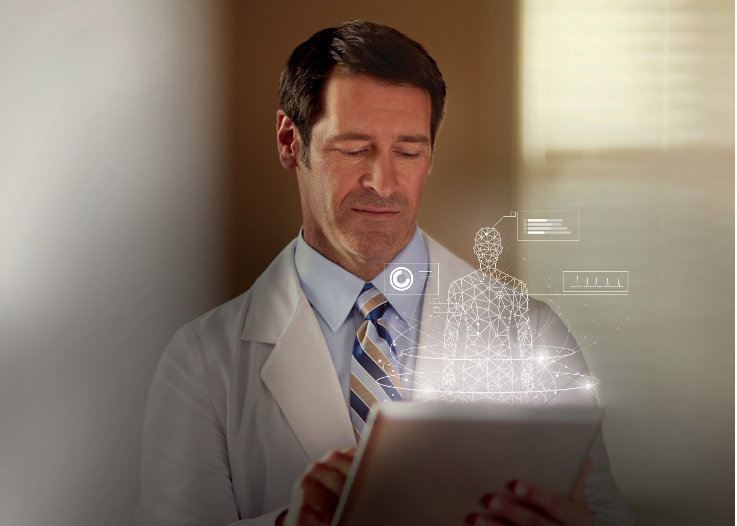BLOG: Artificial Intelligence Provides Radiologists with Solutions for Today … and Tomorrow

Radiology plays a crucial role in diagnosing — from guiding patients into the right treatment plans through follow-up, yet radiology departments continue to face many challenges in a post-pandemic world.
Among those challenges are the rise in staff shortages and increasing workloads that contribute to radiologists’ struggles, such as managing and interpreting the huge volume of data captured to provide quality care for each patient.
To mitigate the increasing volume of radiology data that compound these staff shortages and burnout, Philips AI enabled solutions empower radiologists to efficiently leverage AI in their daily clinical routine.
Growing Trust in AI
According to a recent survey of almost 3,000 healthcare leaders in 15 countries, there is a growing trust in AI and predictive analytics. Radiology leaders are the true early adopters of advanced analytics technologies. Philips AI is helping forward thinking radiologists take advantage of these advanced analytics technologies, including artificial intelligence.
According to Tanuj Gupta, Business Category Leader for Philips AI, Philips believes there are at least three ways AI can create value for healthcare.
“One is in the machines themselves,” Gupta explained. “Can we use AI to increase the speed and efficiency of the scanner? Can I process the image faster and have better turnaround times? Then, there’s a patient safety aspect to it. Could I reconstruct an image with less radiation to the patient?”
Second is leveraging AI for clinical uses like cancer screening or for diagnostic assistance. An end-to-end AI enablement solution can be integrated into existing IT and picture archiving and communication system (PACS) infrastructures to deliver clinical diagnostic assistance directly into the radiology workflow at the point of care.
According to Gupta, a third way AI is also helping is to ease the burden of increased workloads due to staff shortages. He said radiologists are asking, “Can you reduce the task burden for me in some fashion? Along the workflow, can you automate steps for me? Can you predict what steps I might take and tee up the right information? Can you predict what I'm going to put in my report, for radiologists and prefill it out.” All of these steps can save time, money and stress while enhancing productivity.
Practical AI Solutions
The Philips Advanced Visualization platform has more than 70 multimodality applications many of which leverage artificial intelligence to deliver quantitative insights, drive diagnostic confidence, or help reduce time-to-report. Using Advanced Workflow Orchestration, AI-enabled image interpretation helps prioritize patient worklists based on clinical outcomes, with enhanced features to automate reporting and help drive earlier and more definitive diagnosis.
AI enabled applications from a broad ecosystem of multiple vendors are easy to implement into the workflow using a common cloud-based platform like AI Manager. Having a fully scalable solution to host and execute the most appropriate AI application for your study helps provide a more comprehensive assessment and deeper clinical insights.
By leveraging Philips AI solutions, healthcare organizations will benefit from increased productivity, reducing time-consuming, manual tasks such as segmentation and quantification, enabling radiologists to focus on higher-level interpretation and patient care. AI CAD also can act as an adjunct to the radiologists’ decision making by identifying areas of interest or incidental findings, supporting greater confidence and consistency in diagnosis.
Streamlining AI adoption to an all-in-one platform, including an ecosystem of AI applications, generates deep clinical Insights. It also effortlessly generates relevant AI results, harmonizing AI result presentation, and can screen to detect incidental findings.
Lastly, healthcare organizations can rely on Philips AI as a trusted partner, with a flexible business model and SaaS offering, and data processing in a single trusted environment.
For more information, please visit www.usa.philips.com/healthcare/
Related Content:
VIDEO: Talking Trends with Philips: Connecting Data and Technology
Philips Advances AI-powered Diagnostic Systems and Transformative Workflow Solutions at RSNA 2022



 February 03, 2025
February 03, 2025 








